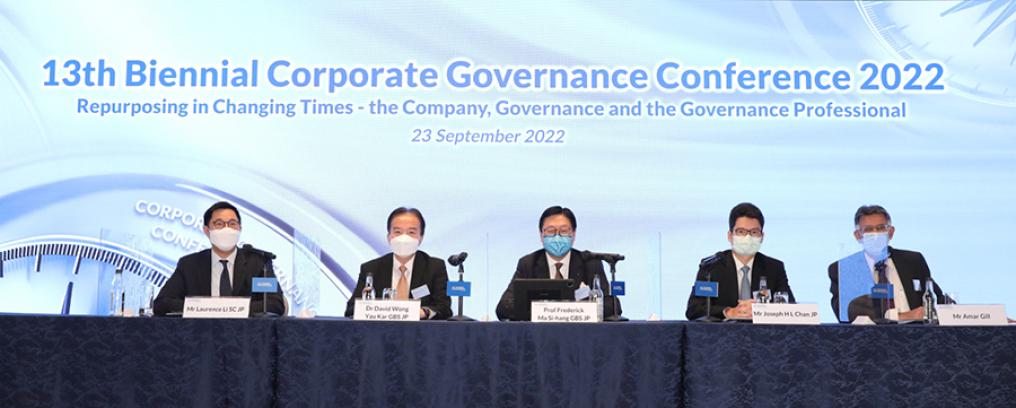Leon Mao, Head of Advisory, Vistra North Asia, outlines 10 things that corporate governance professionals need to know about key changes to British Virgin Islands (BVI) company law and regulations.
Recently, the BVI government enacted key changes to the jurisdiction’s company laws and regulations. The BVI Business Companies (Amendment) Act 2022 and the BVI Business Companies (Amendment) Regulations 2022 will take effect on 1 January 2023. In this update we apply a corporate administrator’s perspective to review the key changes, and assess required actions that should be considered towards ensuring that BVI entities are fully compliant with the new regime.
How will the striking-off system change in the BVI?
Current laws provide that a BVI company that is struck off the Register of Companies (Register), usually as a result of failing to pay annual fees, should remain struck off for a continuous period of seven years before it is formally dissolved. During this period, the company will retain its legal status, and can incur liabilities, unless it is brought back into good standing through payment of outstanding fees and any penalties.
Administrators should note that under the new regime the seven-year period before dissolution will be abolished for struck-off companies. From 1 January 2023, all newly struck-off companies will be dissolved immediately upon publication of the notice of striking off by the Registrar of Corporate Affairs (Registrar), which is expected to occur six months after the licence fee deadline.
Keynotes are that this creates a new and urgent time frame for the management of BVI companies. In the future, careful attention will need to be applied to payment of annual licence fees, to the effect that delayed payments should be avoided where possible. Further, regarding any companies that are currently struck off, urgent actions will be required to bring them back into good standing.
What happens to assets in struck-off companies?
In view of the above scenario, where striking off and fast-track dissolution will be happening on an accelerated basis (that is, six months rather than seven years), it will be very easy for a BVI company to be liquidated.
Administrators should be aware of the positional change. Fast-track dissolution will potentially affect assets held under a BVI company, whether they be shares, real estate or general assets. Their status will become uncertain in a dissolution. Any assets that were not distributed before dissolution will be regarded as undistributed assets that will ultimately be vested in the ‘Crown’. The BVI is a Crown Dependency of the UK, and this means that the dissolved company’s assets will be held on a bona vacantia basis by the BVI Government, as the Crown. This may be a distressing outcome, even if for a short-term period, to many owners of dissolved BVI companies.
How will dissolved companies be restored?
With the new striking-off regime, a simple fast-track restoration will be introduced to facilitate restoration of companies that have been struck off and dissolved. This new process will be additional to the existing court procedure.
Under the new restoration process, companies will be restored by a simple application to the Registrar without the need for a court application, as long as such application is made within five years from the dissolution date.
Regarding the indicia which must be met for the restoration process, these would include the following:
- at the date of dissolution, the BVI company must have been carrying on business, or in operation
- a ‘licensed person’ needs to agree to act as registered agent for the company, and confirm that the corporate records have been updated in compliance with anti–money laundering regulations. The registered agent for the restored company must be in a position to declare that all information they hold is updated and compliant with BVI law
- the company is required to pay a restoration fee, as well as any outstanding fees or penalties, and
- the Registrar needs to be satisfied that it would be ‘fair and reasonable’ for the company to be restored.
The Crown should also be notified if any property of the BVI company has vested bona vacantia in the Crown.
What are the changes to the requirements for liquidators in solvent liquidations?
At present, the qualification and residency requirements for liquidators of a solvent entity are very simple. A person is eligible for appointment as a voluntary liquidator if they are not disqualified from acting on the grounds of being in personal bankruptcy, a minor, a disqualified director or a person who is or was a director or in a senior management position of responsibility within the previous two years. Currently, there is no BVI residence or nexus requirement.
Administrators should note that the new regime demands experience requirements and the hiring of BVI resident liquidators. Liquidators of BVI companies will require both professional qualifications and liquidation experience to be appointed. Further, prior to appointment they should have physically lived in the BVI for at least 180 days (either continuously or in aggregate). Where a local nexus with Hong Kong or the Mainland is required, it would be logical for language, ease of records review and assets collation to appoint joint liquidators, one of whom can meet BVI resident liquidator requirements and the other onshore.
There will be a transitional arrangement such that voluntary liquidators appointed before 1 January 2023 who do not meet the residence requirements will be permitted to continue to act until the relevant liquidation ends.
What will happen to bearer shares?
As administrators would be aware, bearer shares are shares represented by a certificate which states that the bearer of the certificate is the owner of the share. Well used as a method to protect ultimate beneficial ownership details before 2000, bearer shares have been progressively phased out as a method of company ownership.
This phase out began in the early 2000s with higher transparency achieved through:
- abolishing the issuance of new bearer shares
- placing restrictions on the mobility of bearer shares
- requiring specific obligations as to record-keeping
However, bearer shares continued to be a feature of the BVI (and other offshore) corporate frameworks. Administrators are advised to plan for the abolition and removal of the bearer share concept as a feature of BVI law. This end-game process will occur as of 1 July 2023 when all existing bearer shares will be deemed converted to registered shares. Necessary arrangements might include restatement of the register of members, issuance of share certificates and the termination of current custodian arrangements for the holding of the bearer shares.
How will the obligations for financial records and accounts change?
Administrators will need to prepare their BVI companies for greater transparency with new requirements for financial records and accounts – as well as an annual return requirement (see below).
Previously, the BVI approach avoided strict reporting requirements that might involve the need to prepare accounting records and financial statements. The BVI preferred a simplified treatment emphasising the maintenance of records that showed a true and accurate status of a company’s affairs. Financial records and the supporting documents (including bank statements, invoices and agreements), which verify the entity’s transactions for a five-year period from the date of the transaction, should be maintained.
What are the new requirements for an annual return for BVI entities?
Aside from emphasising accounting record-keeping obligations, the new regime introduces additional obligations providing that, except for specific and limited situations, BVI companies will be required to file with the Registered Agent an annual return containing the necessary financial information. Key points to note are set out below.
- The annual return will need to be prepared for each financial year and filed with the Registered Agent within nine months following the end of the financial year to which it relates.
- Details of the format of the annual return have not been issued, but are expected to comprise a simple balance sheet and a profit and loss statement. There are no audit requirements.
- A Registered Agent will be obliged to inform the Registrar if he/she has not received an annual return within 30 days of the due date.
- Annual return details held by the Registered Agent will not be made public and in general there will not be an obligation to file with any BVI regulator.
As exemptions to the rule, companies that already file tax returns in the BVI, certain BVI regulated entities and listed companies whose financial records would already be transparent will not be required to file an annual return.
Will directors’ names become publicly available?
Administrators should be aware that under the new BVI regime, and towards meeting international compliance standards, the names of company directors will be made publicly available through application to the Registrar using the VIRRGIN online filing platform of the BVI Financial Services Commission. We recommend as a practical measure going forward that the Register of Directors filings should always be correct and up to date.
The trend towards transparency has been ongoing since 2016 when all companies became obliged to file an updated Register of Directors with the Registrar, which was held on a private basis. The new changes go further, with the names of directors becoming publicly available – here, it should be clarified that searches will only be applied against a company name, rather than against a director’s name. Information from the Register of Directors, including date of birth, addresses or former directors’ names, will remain private.
It is further noted that only registered users of VIRRGIN will be eligible to make such applications.
In all of this, administrators should be taking special care regarding any entities that have not kept their register up to date, or that are otherwise not in compliance with existing obligations. In such cases, the position should be rectified as soon as possible.
What should we know about the ‘register of persons with significant control’?
The new laws and regulations outline a framework whereby the BVI may in future introduce a public register of persons with significant control. This aligns with previous commitments by the BVI Government to introduce such a beneficial ownership register by 2023, subject to certain qualifications including that such registers become the international norm.
This area remains a wait-and-see, and it is important to note that no changes are expected to come into force on 1 January 2023. In the present form, the laws provide that the BVI Government may, through subsequent regulations, specify the requirements for the format of such registers. There is also provision that the regulations may contain exemptions or restrict access to an individual’s personal data under certain circumstances.
What actions should administrators be taking now?
BVI companies have long been a part of the Hong Kong corporate landscape and are an integral part of every administrator’s portfolio. The changes to BVI company law and regulations are significant and structural, and come from the perspective that the jurisdiction is intent on adopting best practice and addressing international standards. There will also be fine tuning of process changes, including registered agent resignation (resignation notice period reduced to 60 days) and redomiciliation (transparency in the event of redomicile, including advertisement and creditors/ members notice requirements).
Given that the changes are imminent, we would recommend that administrators familiarise themselves with the changes and undertake forward preparations at this stage so that BVI companies in their portfolio are ready to comply with the new laws.
Leon Mao, Head of Advisory
Vistra North Asia
The author is a senior lawyer who is currently Head of the Advisory Services Team at Vistra North Asia’s Hong Kong and Shanghai offices. He deals with developing client solutions, including legal, regulatory compliance, tax, trusts/fiduciary and human resources, towards supporting Vistra’s service lines and client portfolio. His current work includes internal legal advice, new services development and risk control, as well as process optimisation. Regarding regulatory matters, his experience includes AML, CRS/FATCA, BEPS CbC Reporting, Economic Substance and UK Register of Overseas Entities.



